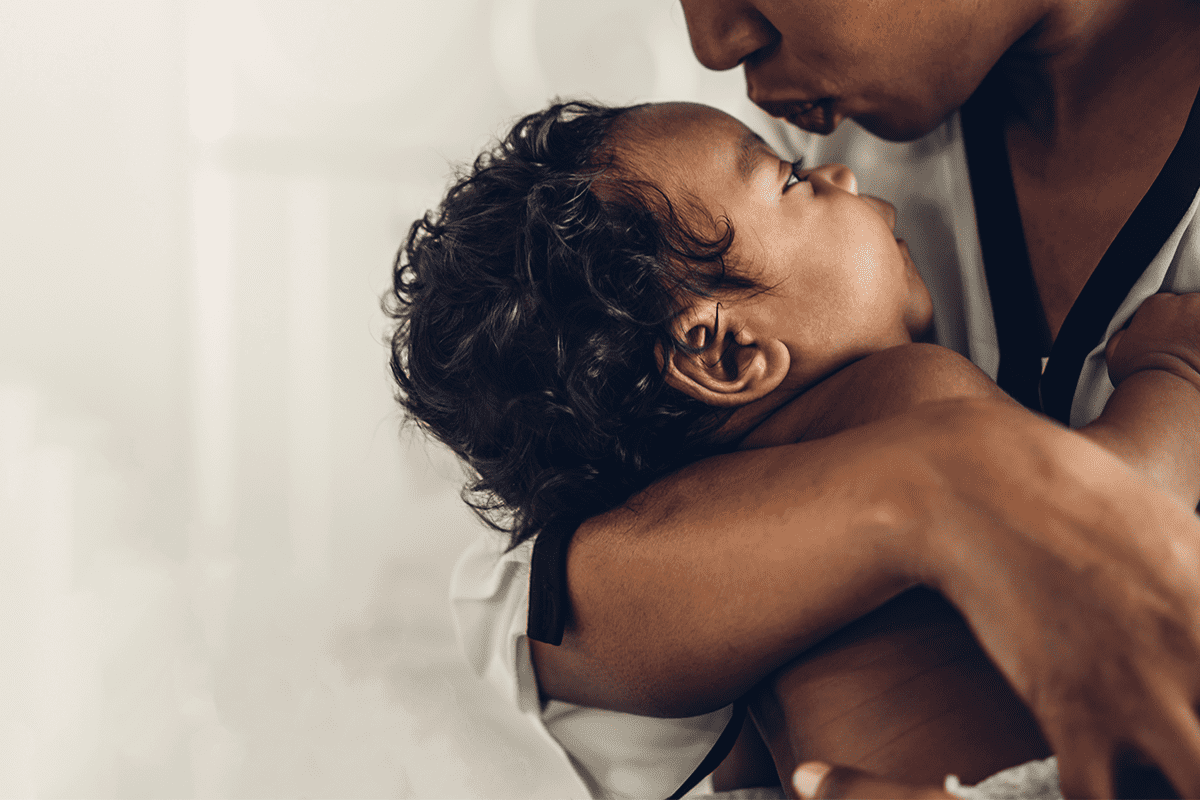This blog post was developed in partnership with Kirbi Range, maternal and child health manager at EverThrive Illinois.
This week marks Black Maternal Health Week, a nationwide effort to deepen the conversation around Black mothers and families and advance health equity across minority communities.
There are arguably few calls to action more pressing than the U.S. maternal health crisis. According to the Center for Disease Control and Prevention, Black people are three to four times more likely than white people to die while they are pregnant or in the year after pregnancy. Particularly in Illinois, the rate of pregnancy-related death is six times higher for Black birthing parents than white birthing parents – a state review committee found that most of these deaths are preventable.
The disparities in maternal and infant mortality are rooted in racism. Both systematic and structural racism and implicit bias among providers are leading contributors to a health care crisis that results in Black people not receiving optimal health care and dying. With maternal mortality rates on the rise, we must take aggressive and targeted action to address this public health crisis and the stark and persistent differences in deaths by race.
Recently, health advocates in Illinois declared a major victory in the fight to halt these inequitable trends in maternal mortality with the passing of HB158, a health care reform bill sponsored by the Legislative Black Caucus. With adequate funding, this bill will expand access to evidence-based home visiting and doula services, opening the door for more pregnant and parenting people to have access to the high-quality care and support they need and deserve before, during and after pregnancy. These services play a pivotal role in reducing risks to maternal health and their expansion has the potential to save lives.
As HB158 awaits Illinois Governor J.B. Pritzker’s signature, work must continue to ensure effective and immediate implementation of the bill’s life-saving provisions. Advocates must turn our focus to funding these provisions, and the state must begin the work to partner with Black-led organizations and communities to make this change a reality. In addition, follow along with ongoing efforts to address the maternal health crisis in Illinois through the work of the Prenatal to Three Coalition.
To learn more about Black Maternal Health Week, visit Black Mamas Matter and the National Birth Equity Collaborative.
This blog post is a component of Illinois Childhood Advocacy Week, a week of full of opportunities for providers, parents and caregivers to share with their legislators that early education is essential—now more than ever as we rebuild and recover from the COVID-19 pandemic. Learn more.

